- Home >
- Product >
- Excavator >
- Mini Excavator >
- View Details
Sale ZX-17 Mini Excavator
Mini excavators are relatively low in price, light in weight, and very convenient to maintain and repair. There are many construction environments that medium and large excavators do not have. Small excavators are small, flexible, multi-functional and efficient, and are very popular among users.
- ZX-17
- ZHUOXIN
- Mini Excavator
- shandong.china
- TT, Paypal, Credit card, Western union
- +86-15163766288
- Mini Excavators with compact dimensions can easily drive through narrow passages and doors, small radius of gyration, 360° rotation, high configuration, high performance, small size, light weight, good transportation, low fuel consumption, high efficiency, stable performance, beautiful appearance, safe and reliable, operation Flexible and convenient, and wide application.
Description

Mini Excavator Introduction
In the world of construction, landscaping, and small-scale excavation, compact excavators have become indispensable tools. Known for their versatility, efficiency, and ability to operate in confined spaces, these machines are a favorite among contractors and operators. This article delves into the features, applications, and benefits of small excavators.

Design and Features
Compact excavators, often weighing less than 10 tons, are designed for easy maneuverability and operation in tight spaces where larger machinery can't access. Key features include:
Hydraulic Systems: These are the heart of the excavator, providing the power needed for digging and lifting.
Boom, Arm, and Bucket: The standard configuration includes a boom (the main arm), a dipper or stick (the secondary arm), and a bucket.
360-Degree Rotation: The upper structure (cab, engine, counterweight) can rotate 360 degrees, allowing for flexibility in movement and operation.
Tracks or Wheels: While most models have tracks for stability and off-road capability, some are equipped with wheels for faster movement on paved surfaces.
Compact Size: Their small footprint makes them ideal for urban construction sites and indoor applications.
Applications
Compact excavators are used in a variety of settings, including:
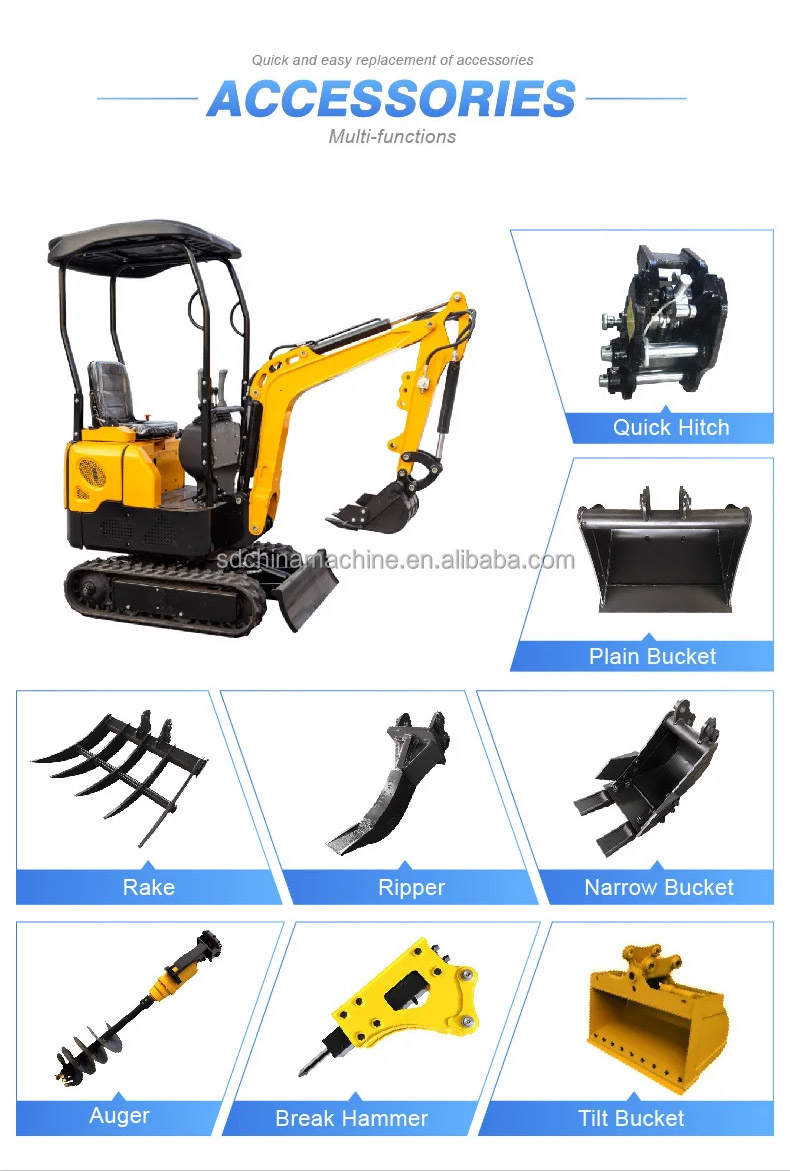
Construction: For tasks such as digging foundations, trenching, and demolition.
Landscaping: Ideal for tree planting, creating ponds, and general garden shaping.
Utility Work: Useful in laying pipes, electrical cables, and sewer lines.
Mining: Small-scale excavation and material handling.
Mini Excavator Advantages
The benefits of using a compact excavator include:
Accessibility: Can operate in confined areas, reducing the need for manual labor.
Versatility: A wide range of attachments (hammers, augers, grapples) enhances its utility.
Reduced Operational Costs: Lower fuel consumption compared to larger machines.
Ease of Transportation: Can be easily transported on a trailer or light truck.
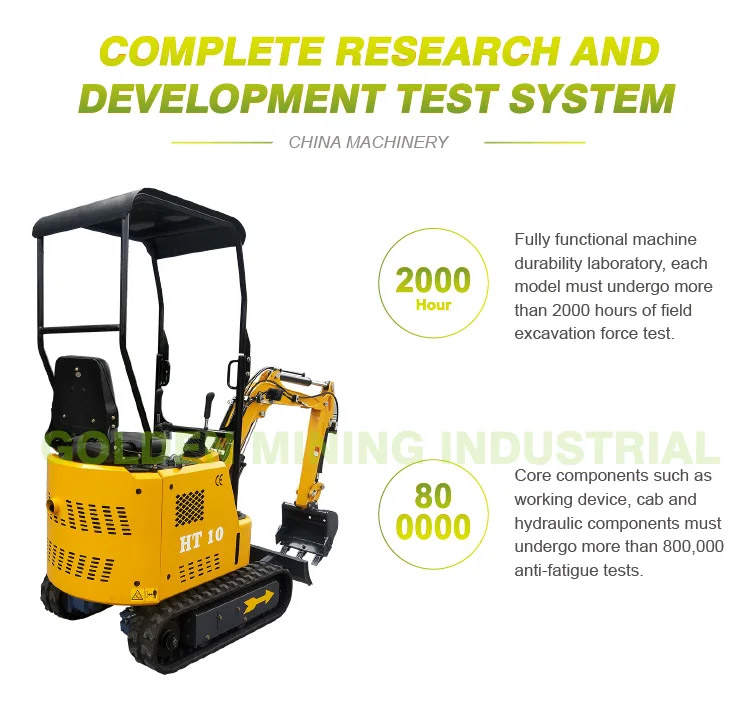
Safety and Maintenance
Safety is paramount when operating any heavy machinery. Compact excavators come equipped with safety features like ROPS (Roll-Over Protection Structure), automatic shutoff, and cameras for better visibility. Regular maintenance, including checks on hydraulics, engine oil, and track tension, is crucial for optimal performance and longevity.
Conclusion
Compact excavators are a testament to the advancements in construction and excavation technology. Their adaptability, efficiency, and small footprint make them a valuable asset in various industries. As technology evolves, we can expect these machines to become even more sophisticated, further enhancing their capabilities and applications.
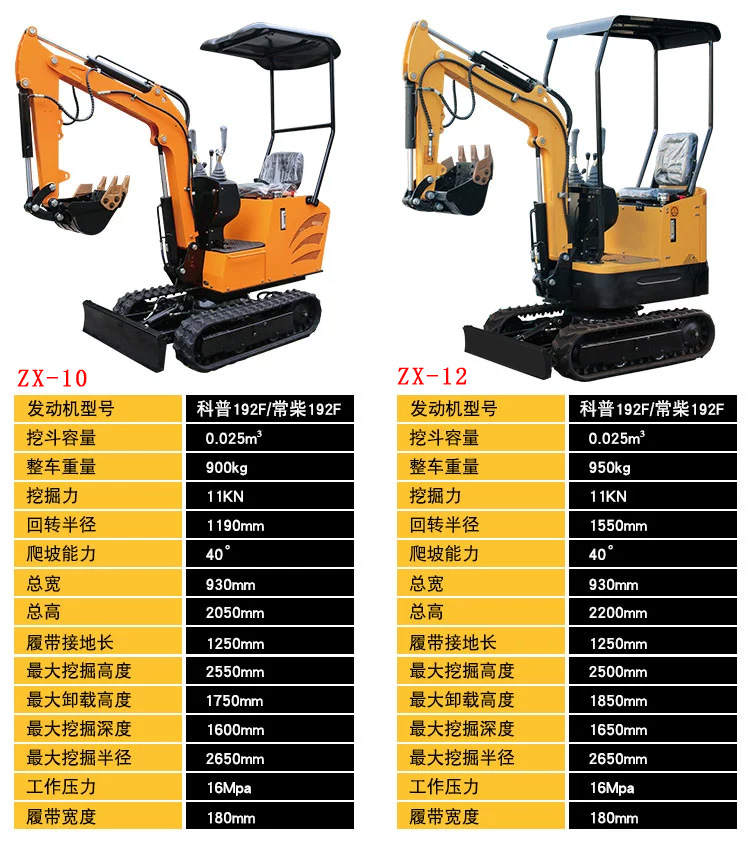
This introduction provides a comprehensive overview of small excavators, covering their design, applications, advantages, and safety considerations.
Anti-Roll Systems: Enhancing stability and preventing accidents.
Advanced Visibility: Cameras and proximity sensors for better situational awareness.
Emergency Shutdown Systems: For immediate response in case of an emergency.
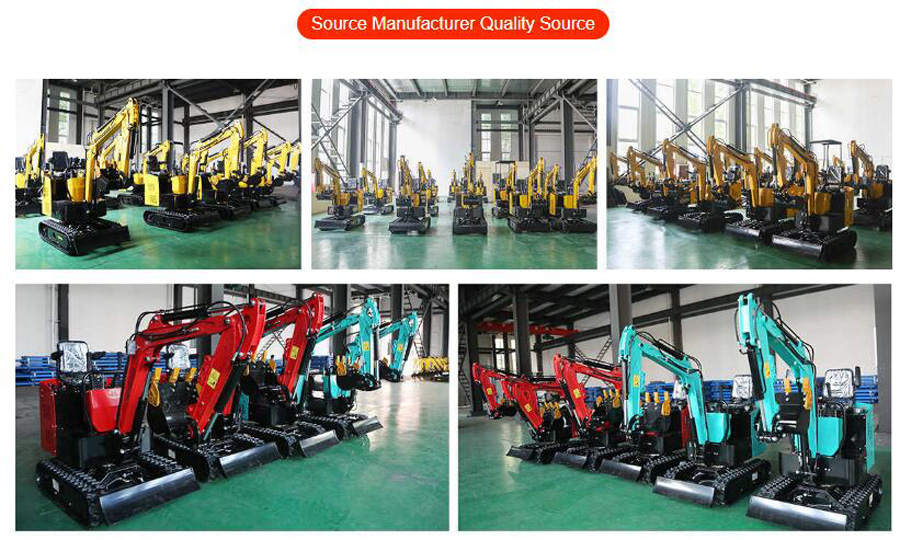
Conclusion
Compact excavators stand at the forefront of construction equipment innovation. Their adaptability, coupled with technological advancements, makes them a key asset in various industries, streamlining operations while minimizing environmental impact. As the demand for efficient and versatile construction equipment grows, the role of compact excavators will undoubtedly expand.
The Compact Design
A defining characteristic of compact excavators is their size. Typically weighing between 1 and 10 tons, these machines are engineered to deliver the performance of a standard excavator in a much smaller package.
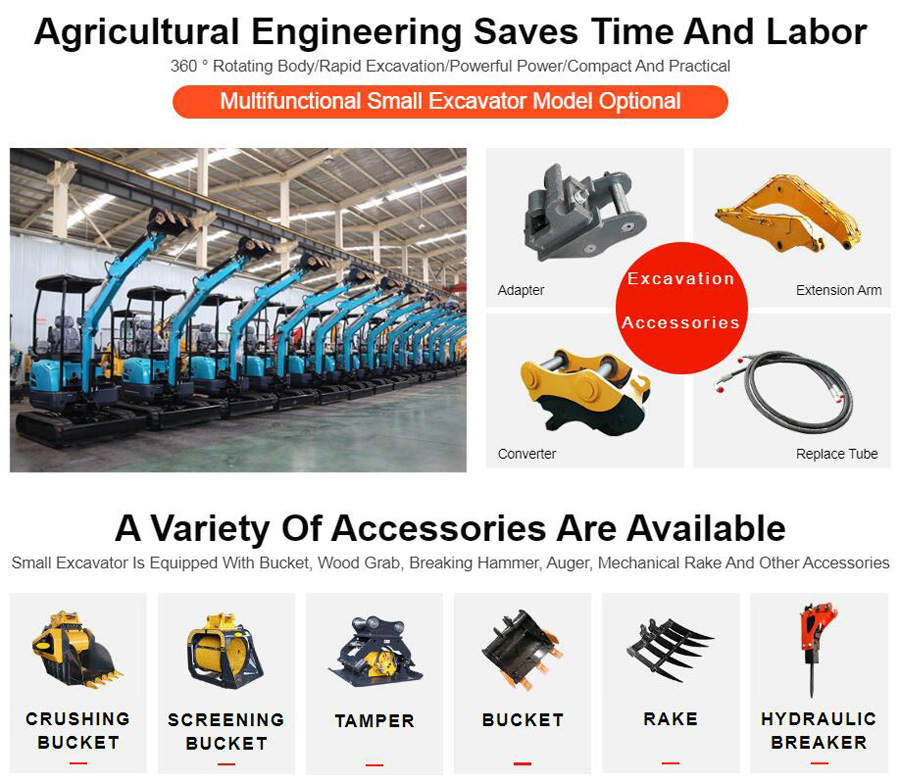
In the evolving landscape of construction and landscaping, mini excavators have emerged as vital assets. These compact machines offer a remarkable combination of power, precision, and flexibility, making them invaluable in a variety of projects. This article explores the intricacies, technological innovations, and broad utility of mini excavators in current construction practices.
Design Excellence and Functionalities
The essence of mini excavators lies in their thoughtful design and multifunctional capabilities. Notable features include:
Compact Dimensions: With weights usually under 7 tons, these machines excel in tight spaces and delicate environments.
Robust Powertrains: Despite their size, mini excavators boast powerful engines and hydraulic systems for heavy-duty tasks.
Adaptable Tooling: Equipped with interchangeable attachments like buckets, rippers, and hydraulic hammers, they cater to diverse needs.
Enhanced Maneuverability: Their design allows for exceptional maneuverability and ease of operation in confined spaces.
Technological Advancements
Mini excavators stand out for their technological integration:
Intuitive Control Systems: Modern cabins feature ergonomic controls and advanced digital interfaces for precise operation.
Emission Control Technologies: New models often include eco-friendly engines with reduced emissions, aligning with environmental standards.
Connectivity and Telematics: Many are equipped with connectivity options for machine health monitoring and operational analytics.
Wide-Ranging Applications
Their versatility makes mini excavators suitable for various applications:
Residential and Urban Construction: Perfect for indoor projects, landscaping, and utility installations in densely populated areas.
Agricultural Operations: Used in farm management, from digging irrigation channels to planting trees and vineyard management.
Specialized Tasks: Ideal for projects in sensitive ecological areas or archaeological sites due to their minimal impact and precision.
Operational Advantages
The benefits of mini excavators are manifold:
Cost Efficiency: They offer lower operational and maintenance costs compared to larger excavators.
Ease of Transport: Their size allows for easy and cost-effective transportation to and from sites.
Operator Accessibility: These machines require less complex training, making them accessible to a broader range of operators.
Safety and Environmental Impact
Safety features like automatic shutoff, reinforced cabs, and excellent visibility are standard. Moreover, their lower ground pressure reduces soil compaction, and quieter operation minimizes noise pollution.
Conclusion
Mini excavators represent a fusion of innovation, efficiency, and environmental consideration. As the construction industry continues to evolve, these compact excavators will play an increasingly crucial role, offering solutions that are both effective and sustainable.
This introduction highlights the combination of advanced design, environmental consciousness, and versatility of mini excavators, emphasizing their growing importance in modern construction and landscaping projects.
In the world of construction, landscaping, and small-scale excavation, compact excavators have become indispensable tools. Known for their versatility, efficiency, and ability to operate in confined spaces, these machines are a favorite among contractors and operators. This article delves into the features, applications, and benefits of small excavators.

Design and Features
Compact excavators, often weighing less than 10 tons, are designed for easy maneuverability and operation in tight spaces where larger machinery can't access. Key features include:
Hydraulic Systems: These are the heart of the excavator, providing the power needed for digging and lifting.
Boom, Arm, and Bucket: The standard configuration includes a boom (the main arm), a dipper or stick (the secondary arm), and a bucket.
360-Degree Rotation: The upper structure (cab, engine, counterweight) can rotate 360 degrees, allowing for flexibility in movement and operation.
Tracks or Wheels: While most models have tracks for stability and off-road capability, some are equipped with wheels for faster movement on paved surfaces.
Compact Size: Their small footprint makes them ideal for urban construction sites and indoor applications.
Applications
Compact excavators are used in a variety of settings, including:

Construction: For tasks such as digging foundations, trenching, and demolition.
Landscaping: Ideal for tree planting, creating ponds, and general garden shaping.
Utility Work: Useful in laying pipes, electrical cables, and sewer lines.
Mining: Small-scale excavation and material handling.
Mini Excavator Advantages
The benefits of using a compact excavator include:
Accessibility: Can operate in confined areas, reducing the need for manual labor.
Versatility: A wide range of attachments (hammers, augers, grapples) enhances its utility.
Reduced Operational Costs: Lower fuel consumption compared to larger machines.
Ease of Transportation: Can be easily transported on a trailer or light truck.

Safety and Maintenance
Safety is paramount when operating any heavy machinery. Compact excavators come equipped with safety features like ROPS (Roll-Over Protection Structure), automatic shutoff, and cameras for better visibility. Regular maintenance, including checks on hydraulics, engine oil, and track tension, is crucial for optimal performance and longevity.
Conclusion
Compact excavators are a testament to the advancements in construction and excavation technology. Their adaptability, efficiency, and small footprint make them a valuable asset in various industries. As technology evolves, we can expect these machines to become even more sophisticated, further enhancing their capabilities and applications.

This introduction provides a comprehensive overview of small excavators, covering their design, applications, advantages, and safety considerations.
Anti-Roll Systems: Enhancing stability and preventing accidents.
Advanced Visibility: Cameras and proximity sensors for better situational awareness.
Emergency Shutdown Systems: For immediate response in case of an emergency.

Conclusion
Compact excavators stand at the forefront of construction equipment innovation. Their adaptability, coupled with technological advancements, makes them a key asset in various industries, streamlining operations while minimizing environmental impact. As the demand for efficient and versatile construction equipment grows, the role of compact excavators will undoubtedly expand.
The Compact Design
A defining characteristic of compact excavators is their size. Typically weighing between 1 and 10 tons, these machines are engineered to deliver the performance of a standard excavator in a much smaller package.

In the evolving landscape of construction and landscaping, mini excavators have emerged as vital assets. These compact machines offer a remarkable combination of power, precision, and flexibility, making them invaluable in a variety of projects. This article explores the intricacies, technological innovations, and broad utility of mini excavators in current construction practices.
Design Excellence and Functionalities
The essence of mini excavators lies in their thoughtful design and multifunctional capabilities. Notable features include:
Compact Dimensions: With weights usually under 7 tons, these machines excel in tight spaces and delicate environments.
Robust Powertrains: Despite their size, mini excavators boast powerful engines and hydraulic systems for heavy-duty tasks.
Adaptable Tooling: Equipped with interchangeable attachments like buckets, rippers, and hydraulic hammers, they cater to diverse needs.
Enhanced Maneuverability: Their design allows for exceptional maneuverability and ease of operation in confined spaces.
Technological Advancements
Mini excavators stand out for their technological integration:
Intuitive Control Systems: Modern cabins feature ergonomic controls and advanced digital interfaces for precise operation.
Emission Control Technologies: New models often include eco-friendly engines with reduced emissions, aligning with environmental standards.
Connectivity and Telematics: Many are equipped with connectivity options for machine health monitoring and operational analytics.
Wide-Ranging Applications
Their versatility makes mini excavators suitable for various applications:
Residential and Urban Construction: Perfect for indoor projects, landscaping, and utility installations in densely populated areas.
Agricultural Operations: Used in farm management, from digging irrigation channels to planting trees and vineyard management.
Specialized Tasks: Ideal for projects in sensitive ecological areas or archaeological sites due to their minimal impact and precision.
Operational Advantages
The benefits of mini excavators are manifold:
Cost Efficiency: They offer lower operational and maintenance costs compared to larger excavators.
Ease of Transport: Their size allows for easy and cost-effective transportation to and from sites.
Operator Accessibility: These machines require less complex training, making them accessible to a broader range of operators.
Safety and Environmental Impact
Safety features like automatic shutoff, reinforced cabs, and excellent visibility are standard. Moreover, their lower ground pressure reduces soil compaction, and quieter operation minimizes noise pollution.
Conclusion
Mini excavators represent a fusion of innovation, efficiency, and environmental consideration. As the construction industry continues to evolve, these compact excavators will play an increasingly crucial role, offering solutions that are both effective and sustainable.
This introduction highlights the combination of advanced design, environmental consciousness, and versatility of mini excavators, emphasizing their growing importance in modern construction and landscaping projects.
Tags
Get the latest price? We'll respond as soon as possible(within 12 hours)



























